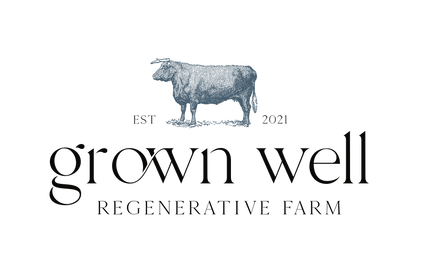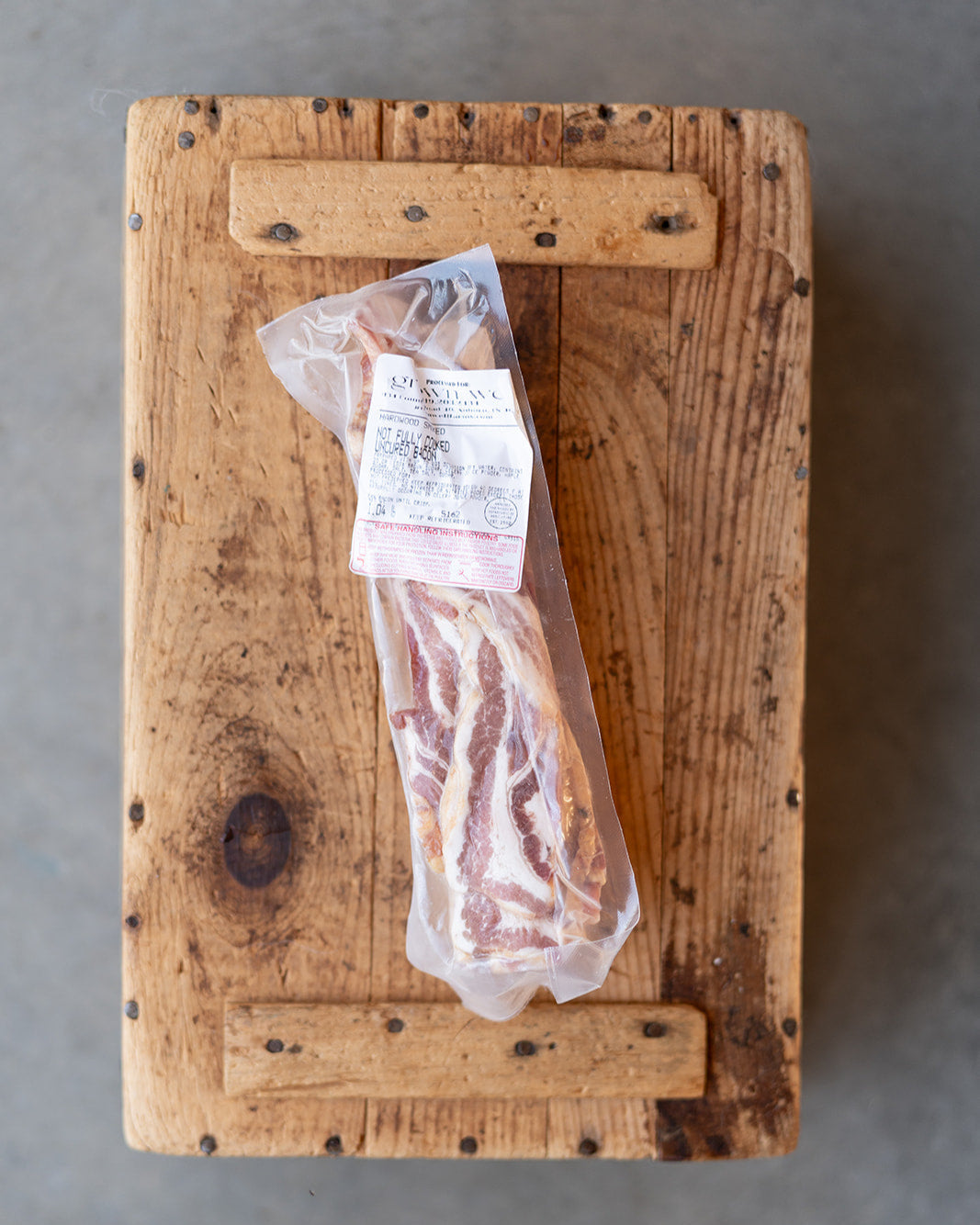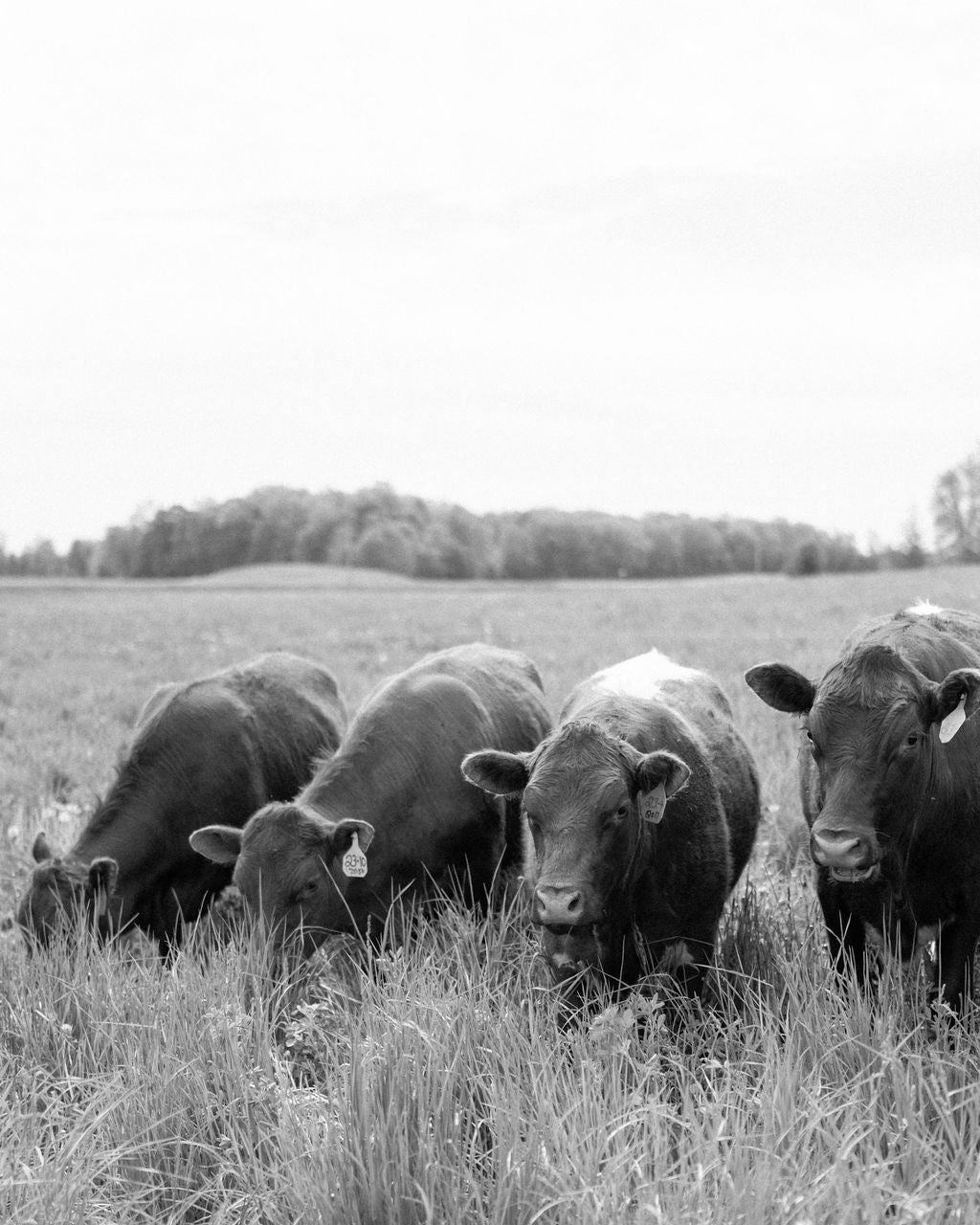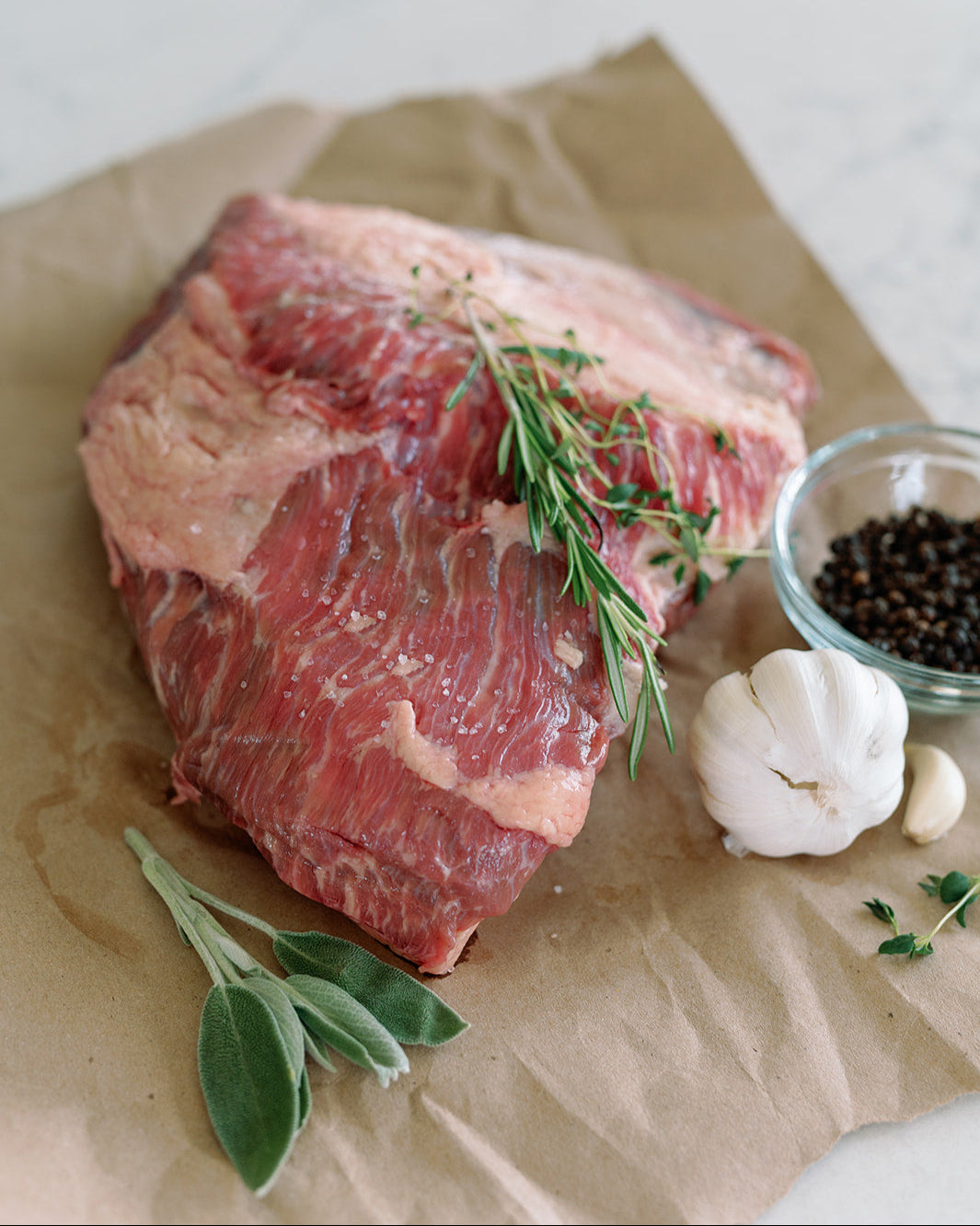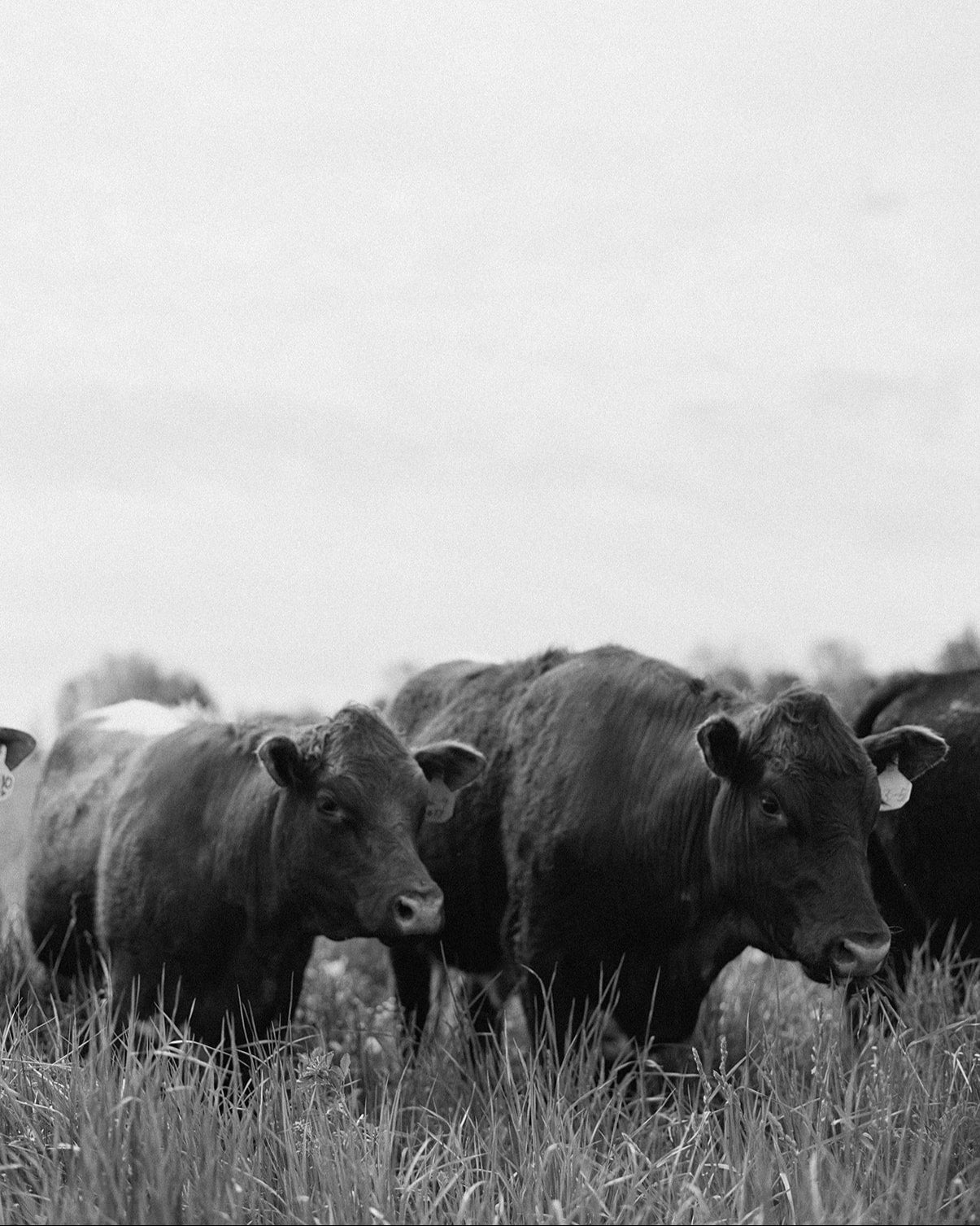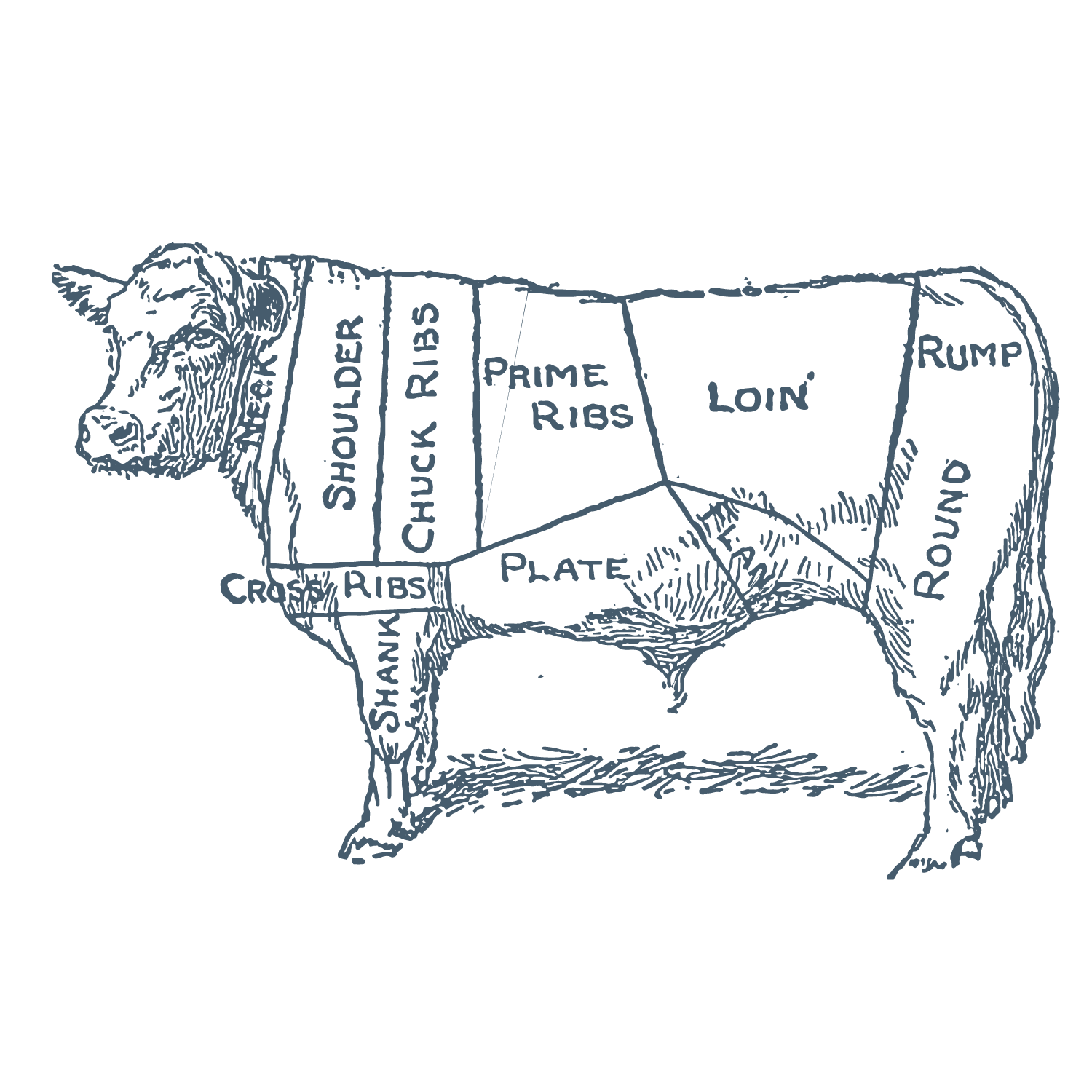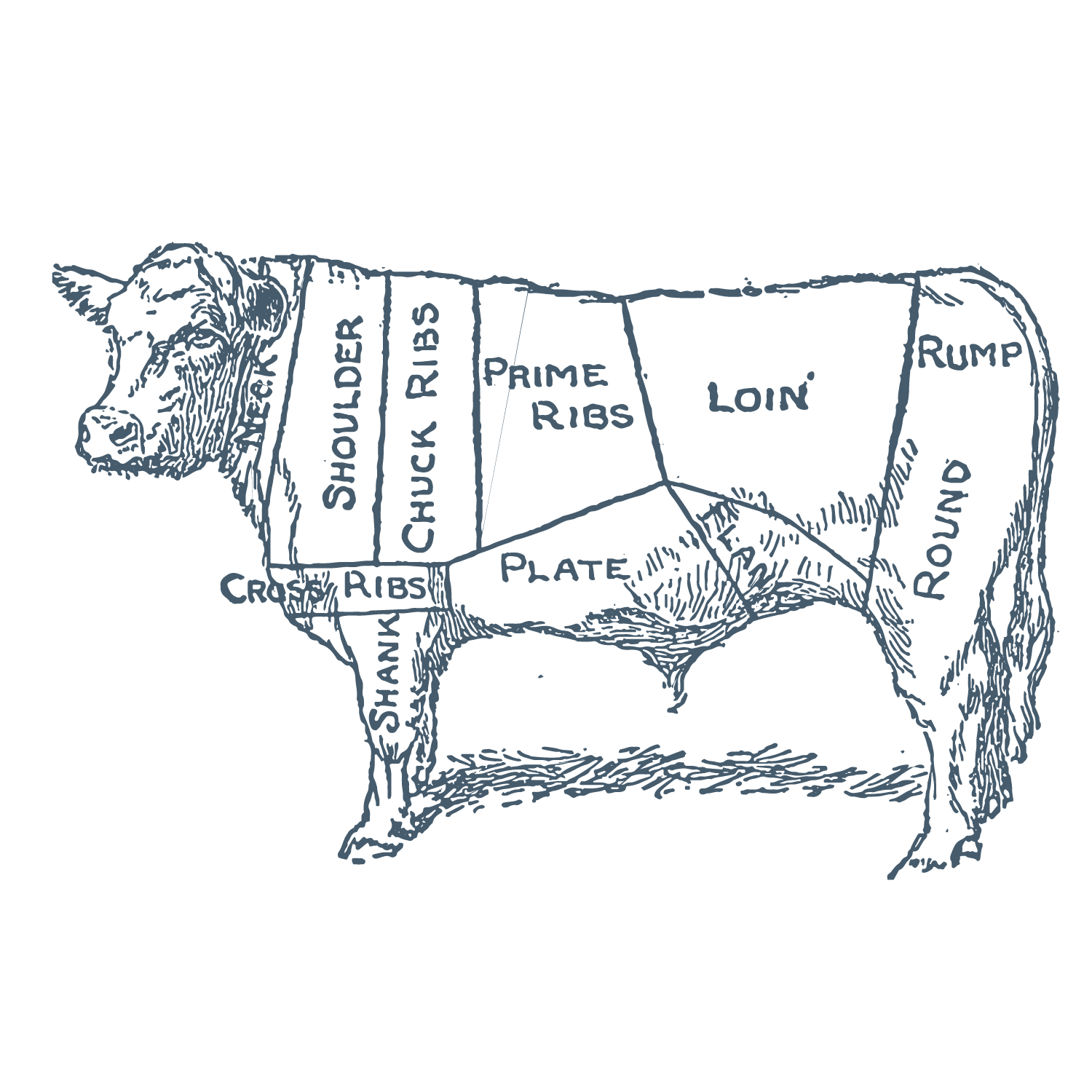When you think about food, your first thought probably goes to what's on your plate—but have you ever considered the story behind that food? Have you ever wondered how it was raised? Where did it come from? Did that animal have a good life?
We believe it’s not just what you eat—it’s how it’s raised that makes the difference. That’s why we chose to practice regenerative farming: a way of growing food that heals the land, honors the animals, and nourishes your family with nutrient-dense meats you can trust.

What is Regenerative Farming?
Regenerative farming goes beyond organic. It's often dubbed as "super-organic." Why? Because it focuses on rebuilding soil health, increasing biodiversity, and working with nature instead of against it. These practices have been scientifically proven to increase the value of nutrients in the food you are consuming. Fact: regeneratively raised beef can be 85% more nutrient dense than conventionally raised beef and has an almost 75 % higher content of the trio of long-chain omega-3 fatty acids (EPA, DPA and DHA). Through rotational grazing, chemical-free practices, and thoughtful animal stewardship, regenerative farming creates a thriving ecosystem from the soil up. A regenerative farm isn’t just a farm you can visit—it’s a philosophy that restores instead of depletes. For the land, the animals, and your family. Now, let's talk a little more about the "how."

For the Land:
If you live near the Midwest, you are sure to see acres and acres of land with one crop being grown- think corn fields, soybean fields, etc. This practice is far from what you would see growing naturally if that same land was a natural wetland, or allowed to naturally grow into a meadow. Nature thrives in diversity. Left untouched, these fields would become diverse meadows filled with a rich mix of grasses, legumes, wildflowers, and even so-called "weeds"—all working together to support a healthy ecosystem.
Conventional farming interrupts this balance. By growing only one crop, it strips the soil of nutrients, requiring synthetic fertilizers, herbicides, and pesticides to survive. While those inputs may help yields, they come at a steep cost—killing the microbiome in the soil, polluting water systems, and leaving behind food that’s lower in nutritional value and higher in toxic residue.
We believe the health of the soil is the foundation for everything. That’s why our pastures at Grown Well Farms are intentionally planted with a variety of grasses, legumes, and flowering plants. These species work in harmony to naturally fertilize the land, reduce erosion, retain moisture, and build richer, more productive soil each season.
Here’s why we chose regenerative farming:
We chose this path because we want to leave the land better than we found it—for our family, for our animals, and for the communities and customers we serve.

For the Animals:
Animals are meant to roam. Our cattle graze on open pastures, foraging on diverse grasses and legumes—just as they were designed to. Our pigs root through soil and bask in the sun. Our chickens scratch, peck, and dust bathe on open land, moving regularly to fresh pasture. Each animal gets to live instinctually and freely, which not only honors their nature but also promotes stronger immune systems and healthier lives.
The result? Animals that thrive without the need for antibiotics, vaccines, or growth hormones. Their welfare is our priority, and their vitality is reflected in the quality of the meat, milk, and eggs they provide.
A few facts about why this matters:
-
Animals raised on pasture experience lower stress and exhibit more natural behaviors, which results in better animal welfare and more nutrient-rich meat.
-
Ethical, low-stress environments improve flavor, texture, and nutritional profiles in meat—especially in omega-3 content and vitamins like E and D.
We raise our animals with intention—because when animals are cared for, they care for the land and nourish the families who rely on them.
For Your Family:
Food should fuel and heal. Regeneratively raised meat is naturally higher in vitamins, minerals, and healthy fats like omega-3s—and free from the harmful residues and stress hormones that often come with industrial farming.
Here’s why that matters:

When you choose to support a regenerative farm, you're investing in more than just a meal. You're choosing to heal the land, protect animal welfare, and prioritize your family’s well-being. You're helping rewrite the story of what's found on your dinner plate.
